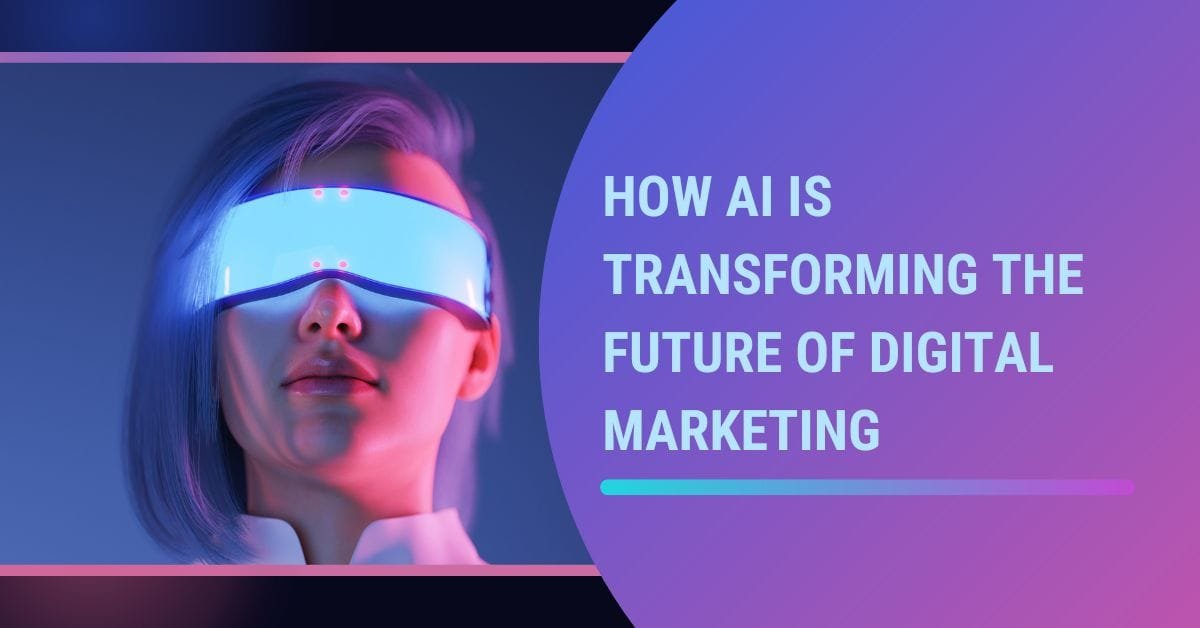In a world marked by relentless technological advancements, Artificial Intelligence (AI) has emerged as a game-changer, revolutionising various industries. One domain where its impact is increasingly felt is marketing. In this article, we will talk about the How AI is Transforming the Future of Digital Marketing and profound ways in which the marketing process is undergoing a transformative shift due to the integration of AI.
Understanding the Current Landscape
The Conventional Marketing Approach
Before exploring the future, it’s crucial to grasp the current marketing landscape. Traditional methods involve extensive market research, segmentation, and targeted campaigns. Human intuition and experience play pivotal roles in decision-making, but these processes are time-consuming and often lack real-time adaptability.
The AI Revolution Unveiled
In a world marked by relentless technological advancements, Artificial Intelligence (AI) has emerged as a game-changer, revolutionising various industries. One domain where its impact is increasingly felt is marketing. In this article, we will talk about the How AI is Transforming the Future of Digital Marketing and profound ways in which the marketing process is undergoing a transformative shift due to the integration of AI.
1. AI in Data Analysis and Customer Insights
AI’s ability to process vast datasets at unprecedented speeds has redefined data analysis. Machine learning algorithms can discern patterns, preferences, and behaviours, providing marketers with unparalleled customer insights. This revolution enables hyper-personalized marketing strategies tailored to individual preferences and behaviours.
Leveraging AI for Predictive Analytics
Predictive analytics, powered by AI, allows marketers to forecast trends and consumer behaviors accurately. This foresight aids in crafting preemptive marketing strategies, staying one step ahead in a dynamic market.
2. Chatbots and Virtual Assistants: Redefining Customer Engagement
The rise of AI-driven chatbots and virtual assistants has transformed customer interactions. These intelligent systems offer immediate responses, enhancing user experience and providing valuable information. Seamless integration of chatbots in marketing channels ensures round-the-clock availability, addressing customer queries promptly.
The Human Touch in AI Conversations
Despite the automated nature of chatbots, infusing a human touch in interactions remains essential. Crafting dialogue that mirrors genuine conversation fosters a connection between brands and consumers, emphasizing the importance of striking the right balance between automation and authenticity.
3. AI-Generated Content and Creativity
AI algorithms have evolved to generate compelling content, blurring the lines between human-created and machine-generated material. From product descriptions to blog posts, AI can mimic various writing styles, ensuring a consistent and engaging online presence.
Nurturing Creativity Through AI
Rather than replacing human creativity, AI complements it. Marketers can leverage AI tools to generate ideas, streamline content creation processes, and enhance overall creativity. This symbiotic relationship between AI and human creativity results in more impactful marketing campaigns.
Looking Ahead: The Future of AI in Marketing
4. Augmented Reality (AR) and Virtual Reality (VR) Experiences
The future promises immersive marketing experiences through AR and VR technologies. AI plays a pivotal role in enhancing these experiences by tailoring content based on user preferences and behaviors. From virtual product try-ons to interactive campaigns, AI-driven AR and VR are poised to revolutionize consumer engagement.
The Fusion of AI and AR/VR: A Glimpse into Tomorrow
Imagine a world where consumers can virtually experience a product before purchase, guided by AI-driven suggestions based on their preferences. This synergy amplifies the impact of marketing efforts, creating memorable and interactive brand experiences.
5. Ethical Considerations in AI Marketing
As AI becomes an integral part of marketing strategies, ethical considerations come to the forefront. Marketers must navigate the fine line between utilizing AI for personalized campaigns and respecting user privacy. Transparent communication about data usage and ethical AI practices build trust with consumers, crucial for long-term brand success.
Conclusion: Navigating the AI Marketing Landscape
In conclusion, the future of marketing is intricately intertwined with the evolution of AI. As we embrace the transformative power of AI, it is crucial to navigate the ethical considerations, ensuring a balance between innovation and responsible practices. The marketing landscape is evolving, and with AI at its helm, the possibilities are limitless. How businesses adapt to and leverage these changes will shape the future of marketing, making it an exciting journey into the unknown.













